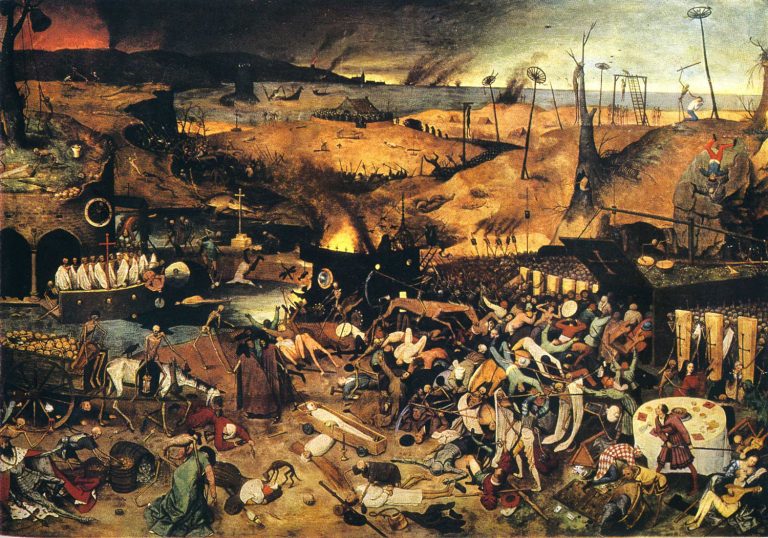- When the Cold War ended, the Doomsday Clock, a symbolic timepiece representing a countdown to the end of the world, sat at seventeen minutes to midnight. As of 2017, the clock lies at two-and-a-half minutes to the hour. ‘The probability of global catastrophe is very high’ announced the Bulletin of the Atomic Scientists in January. Yet, though our demise may feel more imminent than usual, Ben Mauk argues that we have always been ‘apocalypse obsessives’. Writing in the Paris Review, he traces a fascination with the end of the world through millennia of art history, from the books of Joel and Zechariah to present-day pop art.

- If we’re not obsessing about how the world as we know it will end (virus, war, natural disaster, human error, Donald Trump in the library with the candlestick), then we’re imagining the various dystopias we’ll have to experience on the way there, (or arguing that we already live in one). Two of our favourite Granta stories that explore modern-day end of days are Hari Kunzru’s ‘Drone’ (set in a futuristic India, capitalism and biotechnology team up to make life awful for everyone) and ‘Domain’ by Louise Erdrich (set in a futuristic America, capitalism and biotechnology team up to make life awful for dead people).
- What is the difference between the death of an individual and the death of the entire human race? Which is more horrifying? T.C. Boyle grapples with this question in his short story ‘Chicxulub’, which is set in a hospital and named after a vast asteroid that collided with Earth sixty-five million years ago. ‘Astrophysicists call such objects “civilisation enders,”’ he writes, claiming that such a disaster is statistically more likely than living to one hundred in the company of your spouse. Reading ‘Chicxulub’ for the New Yorker, the famously stern Lionel Shriver admitted that when she read the story aloud ‘to make sure I could deliver this today in a fluid fashion, I read the last line and I couldn’t even get it out, I burst into tears,’ something which ‘doesn’t happen to me very often in my sedate, late middle-age’.
- We wouldn’t have the word ‘dystopia’, without it’s precedent, ‘utopia’. And if we are obsessed with our society’s death and degeneration, we are also obsessed by the possibility of its future perfection. The word ‘utopia’ entered the English language in 1516, with the publication of Thomas More’s Utopia, in which he imagines a world without money, property, religion or war. The word is sneaky though. Greek in origin, it combines the suffix -topia (coming from ‘topos’ or ‘place’) with the prefix, u-, which can be interpreted in two different ways: eu- meaning ‘good’ or ou- meaning ‘no’.
- In the face of such terrible odds, it may be tempting to give up and spend our time reading masochistic apocalypse fiction. When there are so many threats from so many directions, where do we begin? ‘Why invest in anti-malarial nets when there’s a robot apocalypse to halt?’ In ‘The New Utilitarians’, Amia Srinivasan investigates a new generation of philosophers known as the effective altruists, who aim to address this issue by finding helpful ways for us to be helpful, such as proposing a universal measurement for human value, known as the Qaly. ‘One Qaly is a single year of life lived at 100 per cent health’ – a system that allows us to choose between healing a blind person (worth 0.4 Qalys) and a person suffering from Aids (0.5 Qalys). Will the Qaly usher in a brave new world of healthcare, or is this just the premise of another work of dystopian fiction?







